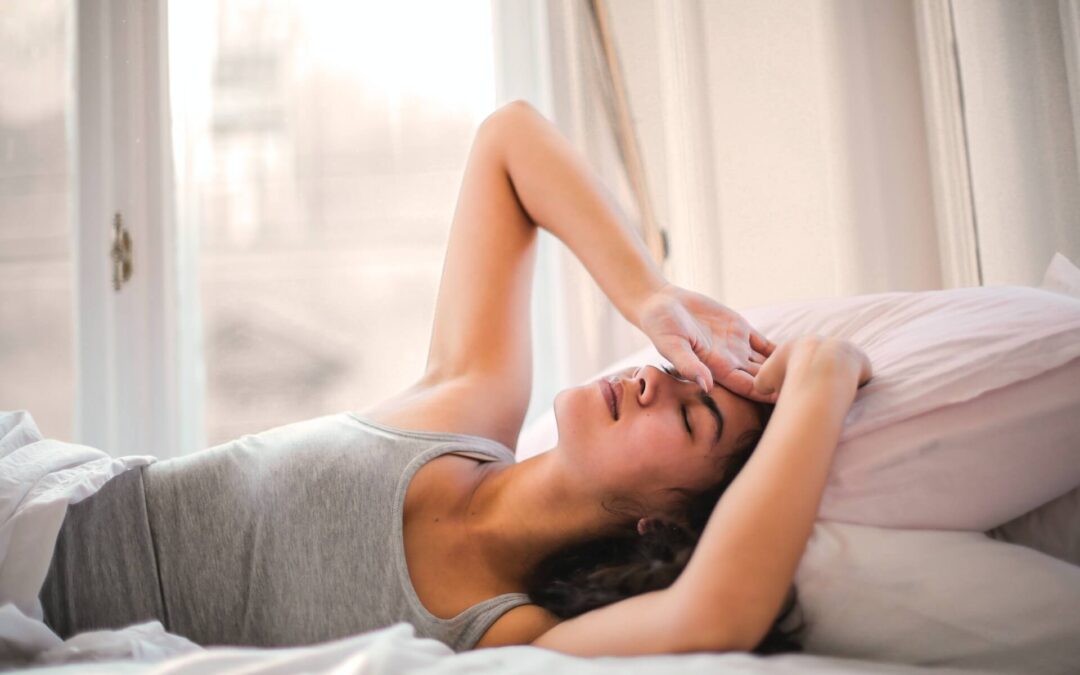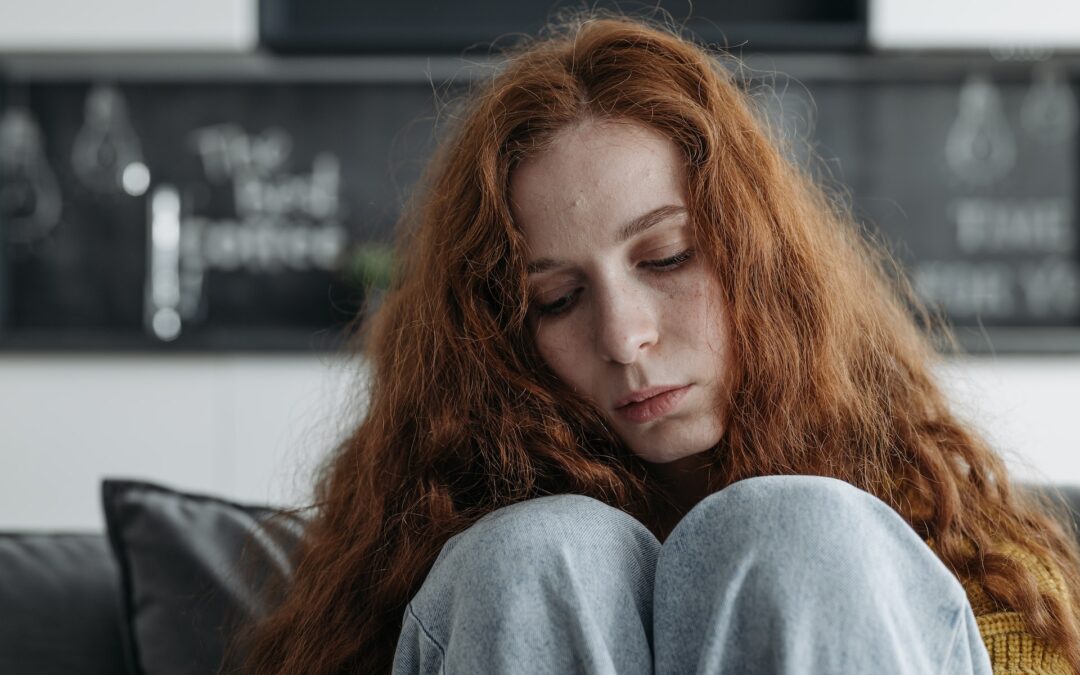Sleep, food, and exercise are all important. They are the foundations of health. Yet, sleep may be the most critical pillar. A person may go for weeks without eating and years without exercising, but only days without sleeping. A single night of sleep deprivation has been found to decrease mental function dramatically the next day. (1) If you’re reading this, you’re undoubtedly curious about how the keto diet impacts sleep. Does it make a difference? Give you sleepless nights? What’s the story?
There is no fast fix. Going keto may enhance or worsen sleep, depending on the circumstances. There are, thankfully, strategies to tilt toward the sleep-enhancement side of the equation.
More on it in a moment. First, let’s look at what may be causing sleep troubles on keto.

Can your diet affect your sleep?
Yes! Your diet does affect how well you sleep. A high caffeine intake, for example, might make it harder to sleep or cause you to wake up frequently during the night, resulting in a less stimulating sleep pattern.
A balanced diet rich in nutrient-rich meals throughout the day will help you sleep better, but a diet lacking fiber and high in sugar and fat can disturb your sleep pattern. Thus, when someone is on the keto diet, they consume less fiber and more fat, which might initially reduce sleep quality.
The time you consume during the day also impacts your sleep. Eating late at night is connected with poor sleep quality; eating earlier and shortly after waking up is associated with better sleep quality. This is only sometimes true for everyone, but paying attention to what and when you consume is crucial.
What is the keto diet?
The keto diet, often known as ketogenic, is a low-carbohydrate and high-fat fat. Most people begin diets to lose weight or live a better lifestyle. The diet has various health advantages, including weight loss, decreased cancer risk, and other ailments.
You must substantially cut your carbohydrate consumption while on this diet, eventually sending your body into a state known as ketosis. Ketosis effectively increases your metabolism, so you’ll burn more calories than usual. This is because your blood sugar and insulin levels are lower, causing your body to burn fat instead of sugar.
Types of ketogenic diets
There are four different forms of ketogenic diets. Most people think of the well-known keto diet, in which you don’t boost your protein consumption and instead focus solely on carbs and fat.
Ketogenic diets include the following:
Standard keto diet: Low-carbohydrate, high-fat consumption. This diet does not prioritize protein.
Cyclical keto diet: This diet includes more carbohydrate consumption. Most days, a person will follow the conventional keto diet, but two or three days each week, they will consume an average quantity of carbs.
Targeted keto diet: Extra carbohydrates are often ingested before or after exercise.
High protein keto diet: Besides cutting carbohydrates and boosting fat, a person will eat more protein.
What is keto insomnia?
Keto insomnia is a loss of sleep caused by following the keto diet. Some dieters may not notice it, although this is due to a lack of carbs. A shortage of carbs deprives your body of L-tryptophan, which allows it to create melatonin.
Melatonin is created by suppressing the creation of serotonin at night. Thus, your body is creating serotonin, but not enough melatonin to help you sleep.
Yet, keto sleeplessness does not endure throughout the ketogenic diet. You will have fewer problems sleeping after your body adjusts to your new eating habits. Individuals often only experience keto sleeplessness when they initially begin following the keto diet.
Causes of Short-Term Sleep Problems on Keto
Your whole metabolism changes when you become keto. Instead of burning sugar (carbohydrates) for energy, you begin consuming keto-friendly foods with your ideal macros to guarantee you are burning fat.
This transition takes time, and it is not always easy. Many people suffer “keto flu” during this transition time, a catch-all phrase for adverse symptoms such as fatigue and overall low energy levels, irritability, headaches, and insomnia connected with converting to a keto diet. (2)
These symptoms might continue for days, weeks, or never appear. Yet, the keto flu is a term for other issues, some of which may be resolved quickly.
Here are three of them, each of which can interfere with sleep.
Carb Withdrawal
Sugar is regarded as a drug by your brain. (3) If you’ve ever tried to quit drinking coffee, you know what I’m talking about. Quitting cold turkey is complex and may interfere with a good night’s sleep.
Yet it’s not just sugary beverages and cookies. Even starchy foods like rice and potatoes contain sugar and activate these addiction pathways. Normal brain processes, including sleep, may suffer when your body adjusts to a low-carb diet.
The good news is that this is only a transitory circumstance. Just stay keto, and your carb addiction will fade.
Electrolyte Imbalances
Electrolytes are minerals like sodium, potassium, and magnesium. They send electrical impulses through your neurological system, including your brain. Electrolyte shortages can cause sleep problems since they govern regular brain activities. (4)
What role does keto play? When you limit carbohydrates on a keto diet, the hormone insulin remains low. Low insulin is fantastic for burning fat, but it’s not so great for retaining salt and potassium(2) because the keto diet is a diuretic; it instructs your kidneys to pee out more electrolytes, which can lead to sleep issues. Inadequate salt levels, for example, can promote sleeplessness by raising the stress hormone norepinephrine levels. (5) The keto diet also limits foods high in potassium and magnesium, increasing the risk of electrolyte shortage.
Waking Up to Pee
You’ve just discovered how keto causes you to excrete extra electrolytes. The same is true for water, as we also advised.
This water is produced by the breakdown of glycogen, your body’s glucose storage form. Essentially, your body prefers to burn these sugar reserves before gaining access to body fat.
However, this procedure produces a flood of fluid quickly sent to your bladder for urine elimination. That is not optimal for sleeping through the night.
Nocturia is the clinical name for needing to urinate more than once every night, and it has been related to depression and an increased risk of death. (6) Like carb withdrawal, keto-induced nocturia should be temporary.
Can you prevent keto insomnia?
A few simple steps might help you manage or prevent keto insomnia. In most cases, keto insomnia will resolve independently, although going without sleep in the early phases of the diet can be difficult. For insomnia to go away alone, a person must adhere to the diet practically rigorously.
But this does not exclude you from attempting to control your sleeplessness. Here are a few suggestions for dealing with keto insomnia.
- Make sure you are getting essential nutrients. Grains, fruits, and vegetables are high in vitamins, minerals, and other nutrients. Taking out most of them means you’re likely getting less of the essential nutrients your body needs regularly. You can mitigate this by taking fiber supplements and paying attention to the nutrients you eat daily. Try to obtain your vitamins from your food, and consider grabbing a multivitamin every day.
- Don’t eat just before bed. Eating before going to bed is not an intelligent way to combat insomnia. Avoid eating late at night and drinking caffeine or alcohol.
- Sleep in a cool room, but keep your hands and feet warm. Sleeping in a heated environment might also interrupt your sleep routine. Nobody likes waking up sweaty, but no one enjoys having cold hands or feet. Sleep in a chilly climate with a warm blanket to be as comfortable as possible at night.
- Ensure the room is dark and quiet (or have some relaxing white noise in the background). Some individuals like to sleep peacefully, while others prefer a little white noise in the background, such as a box fan or sound machine. Whatever you choose, be sure that the room is dark and that you are calm and comfortable.
- Limit screen time before bed. Switching off your phone, computer, or television approximately an hour before bed is standard advice.
How Keto Can Improve Sleep
The flip side is that adopting keto may enhance your sleep.
Blood-Sugar Control
A high-carbohydrate diet means riding the blood-sugar roller coaster. When your blood sugar levels fluctuate, so will your energy and hunger.
This is not conducive to sleep. If you’ve ever woken up hungry in the middle of the night, it was most likely due to low blood sugar. Hypoglycemia is the medical name for this. (7)
On the other hand, being in ketosis takes you off the blood-sugar roller coaster…
And onto the regular and smooth fat train. Your blood sugar stays more constant on the fat train, which means less midnight hunger.
Yet, the link between sleep and blood sugar is more complex. In reality, a lack of sleep inhibits the ability of insulin, your blood-sugar-regulating hormone, to dispose of excessive blood glucose. In other words, sleep deprivation can cause your metabolism to shift toward type 2 diabetes. (8)
In practice, this implies that sleep and ketosis are inextricably linked. You will only burn fat as effectively if you get enough sleep. But, research also shows that a keto diet, which keeps blood sugar low, may guard against the metabolic dysregulation caused by sleep deprivation.
Increased Deep Sleep
In a 2008 study of 14 non-obese males, researchers discovered that a keto diet enhanced deep sleep more than a carb-containing diet. (9) During deep sleep, tissues recover, new memories develop, and cerebrospinal fluid fills the brain, clearing away substances associated with Alzheimer’s disease (such as amyloid beta). (10) | (11)
But there’s a catch: Compared to the control diet, the keto diet lowered REM sleep, best known for dreaming and memory consolidation.
GABA and Glutamate
Gamma aminobutyric acid (GABA) is an inhibitory neurotransmitter that aids mental relaxation. In one randomized controlled experiment, GABA supplementation helped insomnia patients fall asleep faster and remain asleep longer. (12)
The keto diet has increased GABA levels in rats and humans. (13) Then there’s glutamate, the excitatory neurotransmitter that directly opposes GABA. High glutamate levels appear to be the cause of brain damage and seizures. (13) What is the significance of this? The keto diet has been demonstrated to enhance sleep quality in children with epilepsy, most likely via increasing GABA and decreasing glutamate toxicity. (14) As a result, anyone following a keto diet may get similar benefits.
Weight loss
Obese people sleep less, wake up more, and feel less refreshed than the average population. (15) Obesity also raises the chance of sleep apnea, a severe disorder characterized by nighttime breathing restriction.
Sleep usually improves when obese persons lose weight. (15) Here is when keto may come in handy. The ketogenic diet has been proven in multiple trials to promote weight loss in obese and diabetic populations. (16) | (17)
Quick Tips for Good Sleep On Keto
Based on what you’ve just learned, here are some quick recommendations for good keto sleep:
- Let two to four weeks adjust to the ketogenic diet and break your carb addiction. (Measure your ketones to ensure you’re in ketosis).
- To support appropriate levels of melatonin, your sleep hormone, reduce blue light from phones, tablets, Televisions, and laptops at night.
- Boost your salt intake to avoid low sodium levels and maximize your antidiuretic hormone levels (ADH). (ADH allows you to sleep without needing to pee).
- To fix electrolyte imbalances, consider taking potassium and magnesium supplements. Magnesium, in particular, aids in suppressing stress hormones like cortisol, which is typically dysregulated in keto novices. (18)
- Try using GABA or melatonin pills as short-term sleep help.
The Bottom Line
Keto insomnia is annoying and may encourage you to abandon the diet initially, but there are ways to deal with it. A nutritional or electrolyte shortage may emerge due to a keto diet, so be mindful of what you include in your diet – doing so will assist your body in returning to its regular circadian rhythm.
The essential aspect of any diet is staying healthy and listening to what your body is trying to tell you. Before beginning any diet, consult your doctor to confirm that you are acting safely.







0 Comments